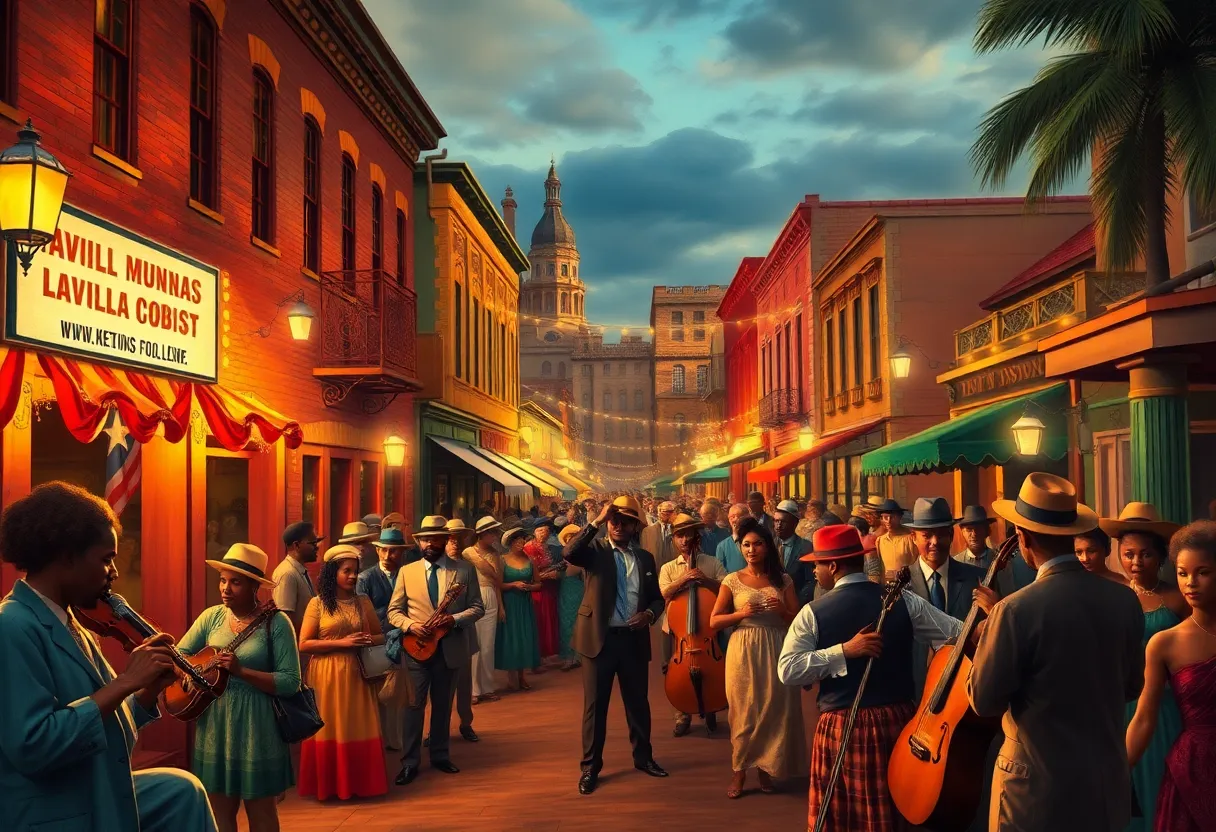News Summary
Jacksonville pays tribute to Ma Rainey, the ‘Mother of the Blues’, highlighting her significant contributions to music and the cultural landscape of the LaVilla district. Born in 1886, Rainey’s career began in the early 1900s and included collaborations with notable artists. Her personal life and experiences resonated through her music, leaving a lasting impact that continues to be commemorated today.
Jacksonville is celebrating the legacy of Ma Rainey, a pioneering figure often referred to as the “Mother of the Blues.” In the early 1900s, Rainey electrified audiences in Jacksonville’s LaVilla district, a vibrant hub for African American culture and music, particularly during the era of the Chitlin’ Circuit.
Ma Rainey, born Gertrude “Ma” Rainey in 1886 in Columbus, Georgia, began her performance career as a teenager, participating in talent and minstrel shows. She and her first husband formed a musical group called the Alabama Fun Makers Company, setting the stage for her burgeoning career in entertainment. In 1906, they joined the Rabbit’s Foot Company, a traveling troupe founded by Jacksonville native Patrick Chappelle based in LaVilla.
While performing with the Rabbit’s Foot Company, Rainey gained considerable regional fame, often receiving as many as four encores at the Globe Theater, which now operates as the Clara White Mission. The Globe Theater opened its doors in 1910, establishing itself as a central venue for Black performers in Jacksonville. Following this, Ma Rainey joined Frank Crowd’s Globe Stock Company, further solidifying her presence in the performing arts scene.
In 1923, Rainey was discovered by producer Jay Mayo “Ink” Williams, leading to a significant recording contract with Paramount Records. Within her first five years with the label, she recorded over 100 tracks, collaborating with influential artists such as Louis Armstrong. Her music often featured themes that resonated deeply with women’s experiences, particularly struggles with heartbreak and depression. Notably, Rainey boldly referenced her bisexuality in at least three songs, including the iconic “Prove It On Me Blues,” released in 1928.
Rainey’s life offstage was as dynamic as her performances. In 1925, she was arrested for hosting a lesbian sex party in her Harlem home, an event from which she was bailed out by her protégé, Bessie Smith. Rainey was part of a network of queer Black women in Harlem, many of whom navigated their sexual identities while maintaining marriages with men.
After returning to Georgia in 1935, Rainey operated three theaters until her death in 1939 from heart disease at the age of 53. Her contributions to music were recognized long after her passing, as she was inducted into the Blues Foundation’s Hall of Fame in 1983 and later into the Rock and Roll Hall of Fame in 1990.
The cultural impact of LaVilla during the Chitlin’ Circuit era was profound, as it served as a safe haven for African American performers. Many celebrated artists, including Billie Holiday and Duke Ellington, graced the stages of LaVilla, which was a crucial site for African American music during a time of widespread racial segregation.
The legacy of Ma Rainey continues to be commemorated in popular culture. In 2020, Netflix released “Ma Rainey’s Black Bottom,” a film adaptation of August Wilson’s acclaimed play that tells the story of Rainey’s life and her impact on the music industry. Rainey earned various nicknames throughout her career—such as “Songbird of the South” and “Gold-Neck Woman of the Blues”—each reflecting her significance in the music landscape.
As Jacksonville remembers Ma Rainey, the story of her talent and the vibrant cultural backdrop of the LaVilla district serves as a reminder of the rich history and ongoing legacy of African American musicians and performers in the United States.
Deeper Dive: News & Info About This Topic
HERE Resources
Additional Resources
- News4Jax: Ma Rainey’s Jacksonville Roots
- Wikipedia: Ma Rainey
- The Jaxson Mag: Surviving Chitlin Circuit Sites
- Google Search: Chitlin Circuit
- Folio Weekly: The Great Black Way
- Google Scholar: Ma Rainey
- Jacksonville.com: Rich History of Jacksonville
- Encyclopedia Britannica: Jacksonville History
- Metro Jacksonville: Facts About Jacksonville’s Black History
- Google News: Ma Rainey
Author: STAFF HERE JACKSONVILLE WRITER
The JACKSONVILLE STAFF WRITER represents the experienced team at HEREJacksonville.com, your go-to source for actionable local news and information in Jacksonville, Duval County, and beyond. Specializing in "news you can use," we cover essential topics like product reviews for personal and business needs, local business directories, politics, real estate trends, neighborhood insights, and state news affecting the area—with deep expertise drawn from years of dedicated reporting and strong community input, including local press releases and business updates. We deliver top reporting on high-value events such as the Jacksonville Jazz Festival, Riverside Arts Market, and World of Nations Celebration. Our coverage extends to key organizations like the Jacksonville Chamber of Commerce and JAXUSA Partnership, plus leading businesses in logistics, healthcare, and entertainment that power the local economy such as CSX Corporation, Baptist Health, and VyStar Credit Union. As part of the broader HERE network, including HEREOrlando.com, HEREStPetersburg.com, HERETallahassee.com, and HERETampa.com, we provide comprehensive, credible insights into Florida's dynamic landscape.






